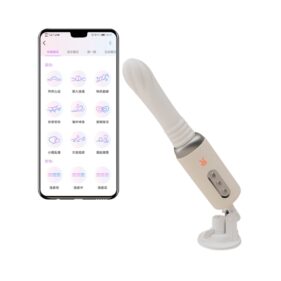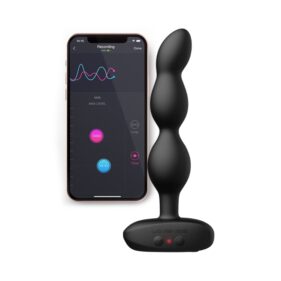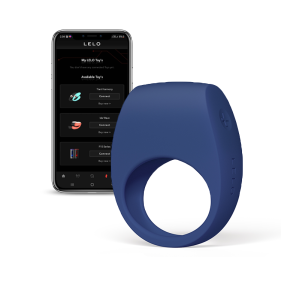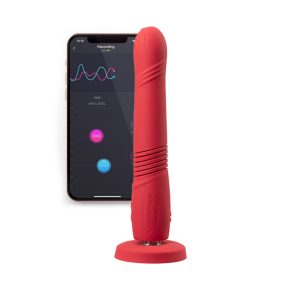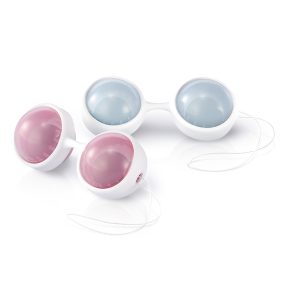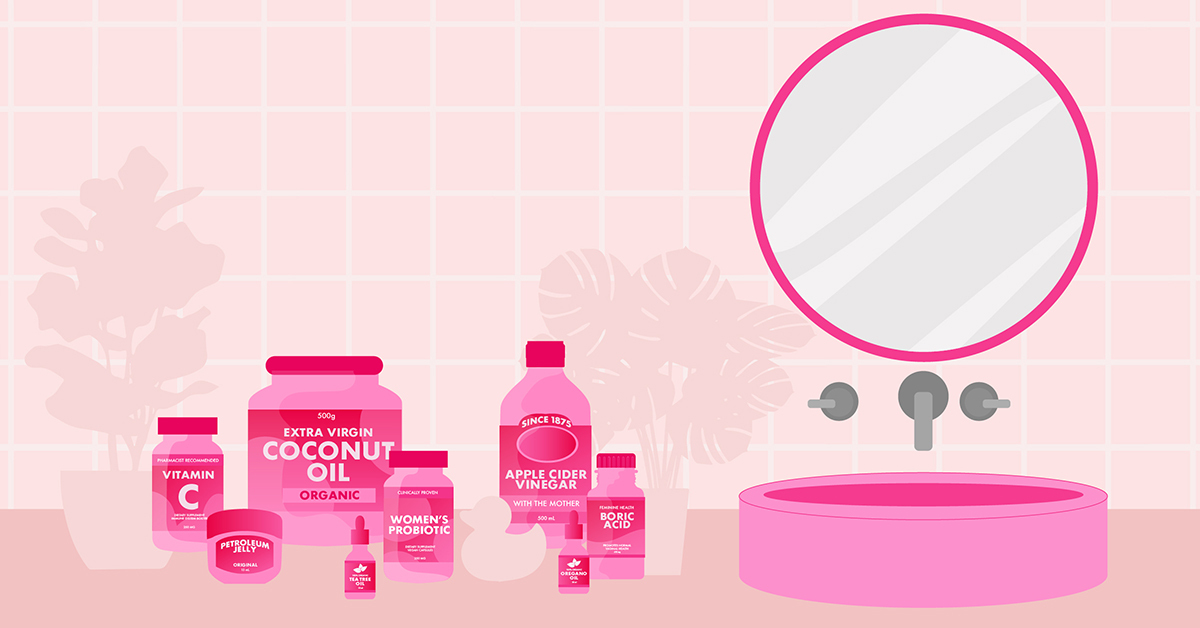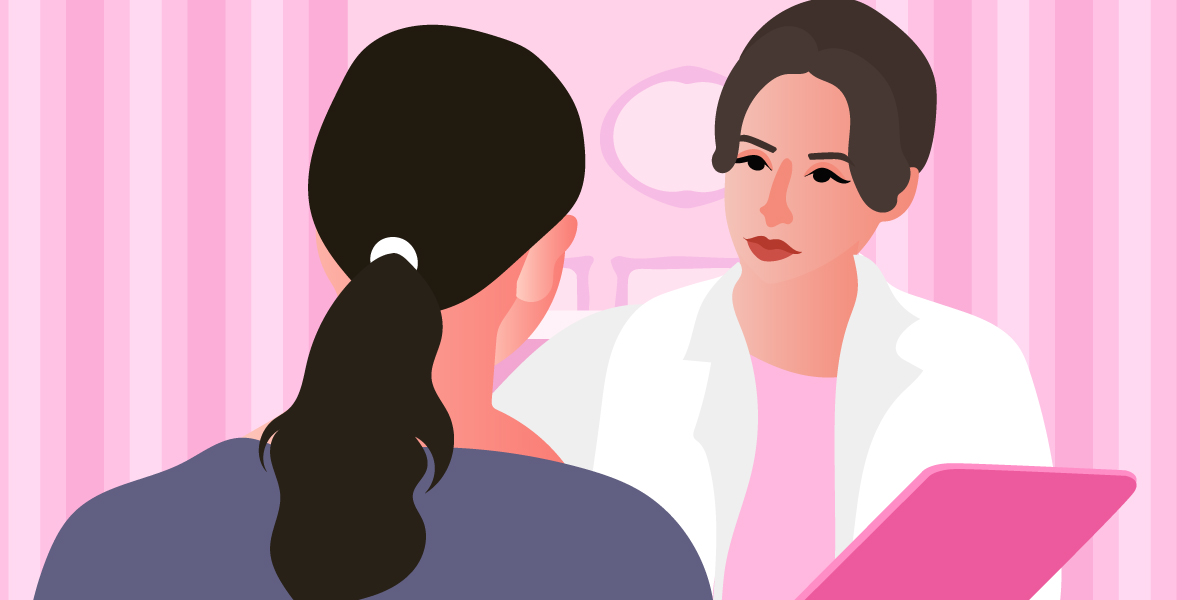
Do you know what to expect on your first gynecologist visit? If not, this guide is for you.
If you’re a vulva owner, having a gynecologist visit is inevitable in your life. And if you don’t know what a gynecologist is, they are a doctor who specializes in the field of the female reproductive system. They ensure your womanly functions are up to par in the years to come.
But if you feel nervous and antsy at the thought of it, that’s okay. It can feel a lot just to hear about it. But if you know what to expect and prepare beforehand, you may feel calmer about it.
So if you’re ready to learn, just keep on reading!
Importance of Gynecological Consultations
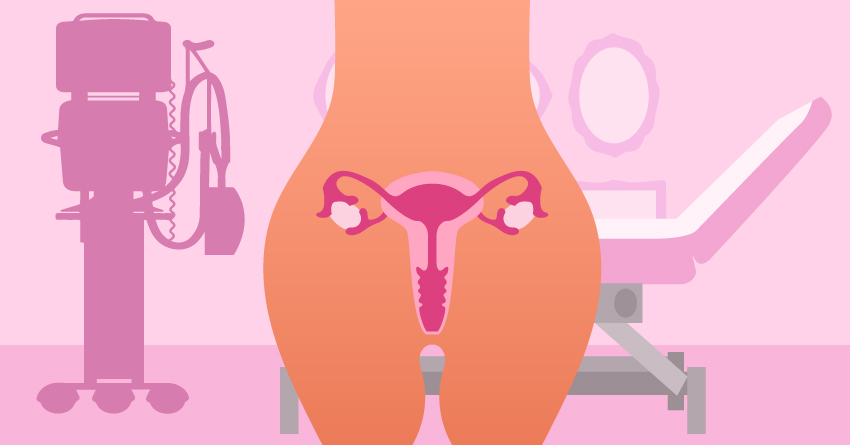
Gynecological consultations provide you with the needed information about your changing body, even more so if you’re a teenager. You become more familiar with the female reproductive system, menstruation, and your own sexuality, leading to the ever-vital sex education.
In turn, it teaches you what to do, like how to be sexually healthy and what to avoid, from unexpected pregnancies to sexually transmitted infections and diseases. Under that umbrella, learning different protection methods and birth control are introduced. Going through physical exams like a breast exam and pelvic exam are also likely.
But outside of sex, seeing a gynecologist allows you to know more about different reproductive health diseases and their own means of prevention. In turn, treatment options like medicines and surgical procedures are introduced.
What to Expect on Your First Gynecologist Visit
Consider these things beforehand as you visit your gynecologist for the first time.
1 Getting to know each other
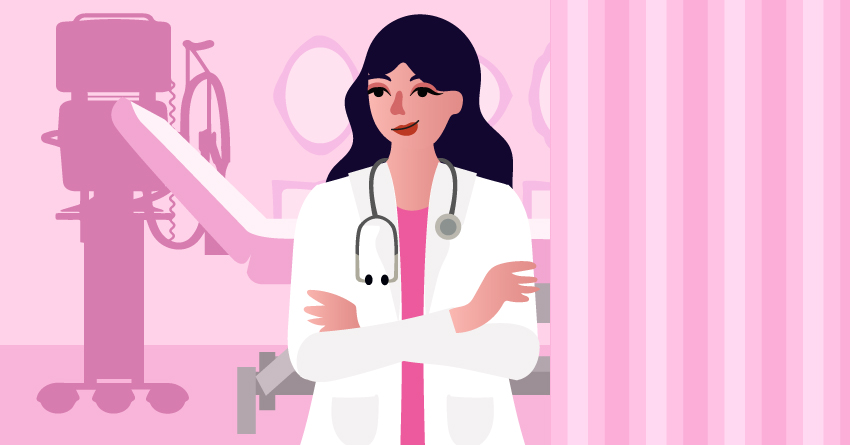
To break the ice, you and your gynecologist ask basic questions about each other. You can ask them about their expertise. As for you, they may ask who you are, your education, your personality, and your hobbies, especially the latter, because it gives them a better idea of how certain behaviors react to your reproductive health.
2 Discussion about medical history
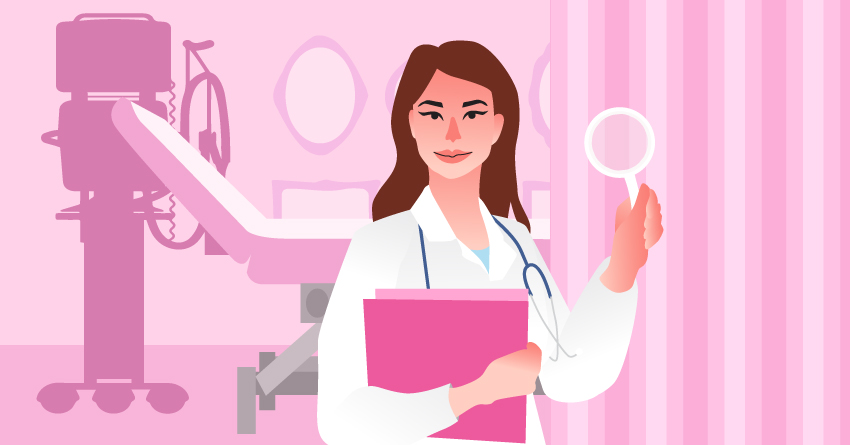
This is something you gather beforehand, presenting to your gynecologist when you first meet. From your first period, the type of vaginal discharge you release, the body in your body, and more, gather them. Afterward, they will discuss it further with you. If questions from there are raised, you answer truthfully. Moreover, sharing your sexual history if you’re older is also helpful so they understand more about your body.
3 Physical exams
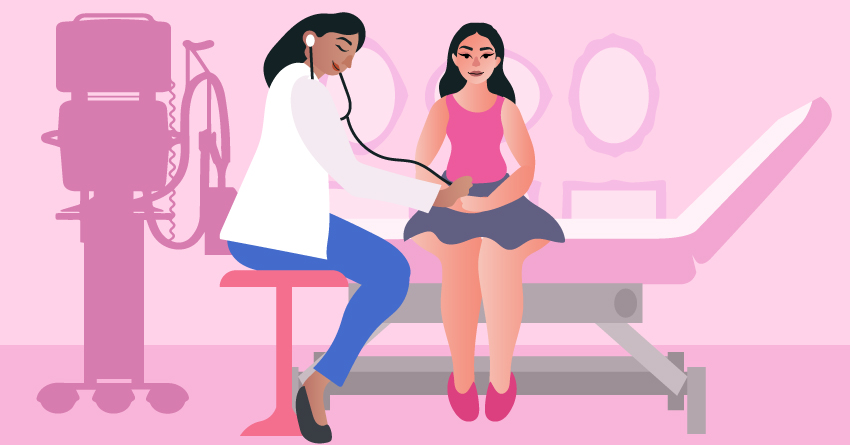
As you two discuss and talk more about your health, conducting physical exams may occur. Also, it depends on whether you have a specific problem in mind. Some of those physical exams include:
- Basic health checks: These include checking your blood pressure, heart rate, weight, height, breathing, and more.
- Breast exam: Your shirt is lifted up as your gynecologist inspects your breasts for any unusual build-ups like lumps or cysts. But of course, we want none of that.
- Pelvic exams: Dressing up into a gown and opening your legs on an examination bed so your gynecologist can inspect your vulva. They may also insert two fingers inside to check your ovaries and vagina.
- Pap smear: This exam usually occurs when you turn 21, wherein your gynecologist takes some of your cervical cells through a small spatula. Then, it’ll be examined in a lab for any early detection of cervical cancer. It’s also an exam that occurs every 3 years.
-
₱2,450.00
-
₱7,500.00
-
₱8,100.00
4 Answering any health-related questions brought up
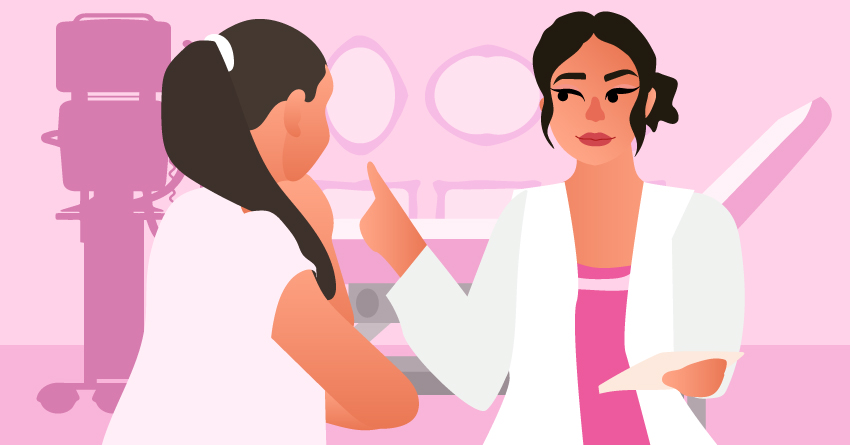
Whatever questions you have piling up, especially after being inspected and discussing your health status, this is the time to bring them up. In turn, your gynecologist answers to the best of their knowledge and even provides extra take-home notes for you to remember.
5 Plans for future consultations
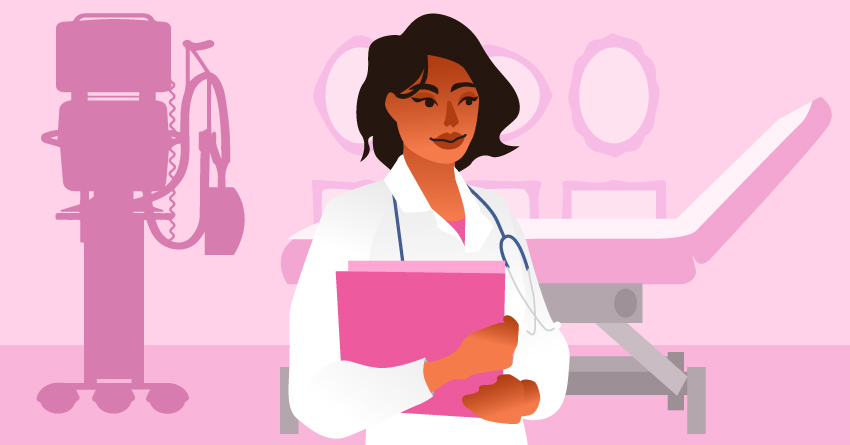
From the first gynecologist visit, it’s only natural and normal to schedule the next few sessions. After all, your health can very much change over time. It can be every few months, bi-annually, or yearly. It depends on your health and what your gynecologist recommends.
6 Providing certain health advice
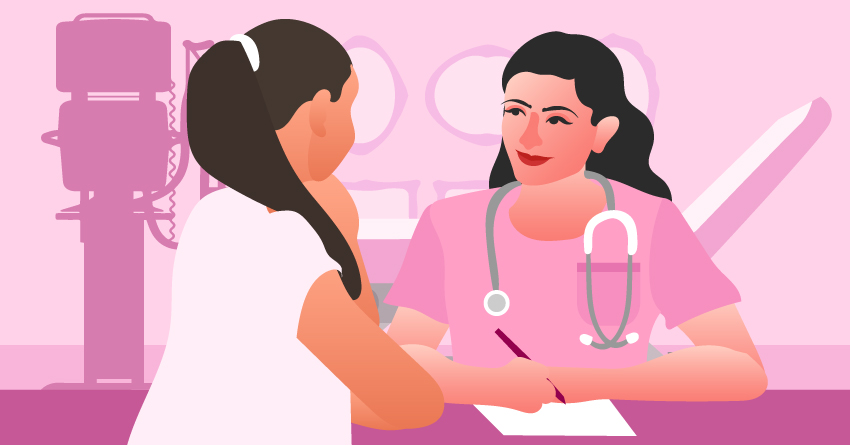
Whether before or after future planning, your gynecologist will prescribe specific medications or extra treatments that will benefit your health. They may also give you certain suggestions on how to improve your lifestyle (e.g., more exercise and eating particular types of foods).
-
₱9,000.00
-
₱10,600.00
-
₱5,395.00
How to Prepare For Your First Gynecological Visit
Note what you need to gather days before seeing your gynecologist for the first time through this list down below.
1 Collect information related to your medical history.
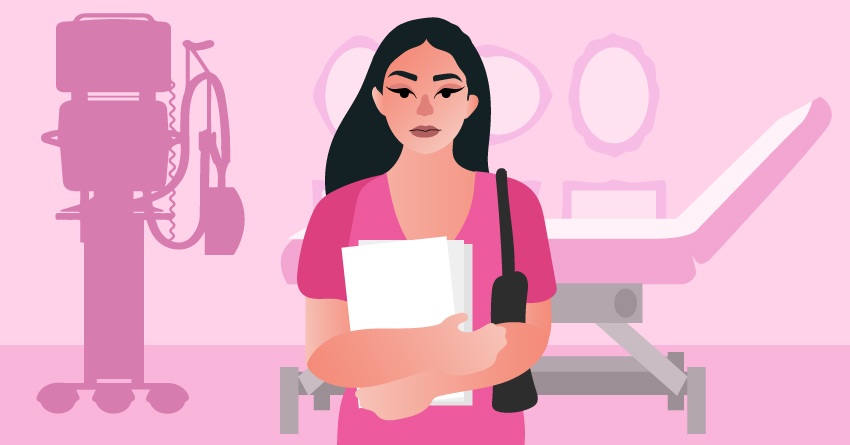
From medications you’ve taken, past illnesses and injuries, to even previous surgeries you’ve had, note them down. That way, your gynecologist has a clearer idea of your current condition.
2 Think of what questions you want to ask them.
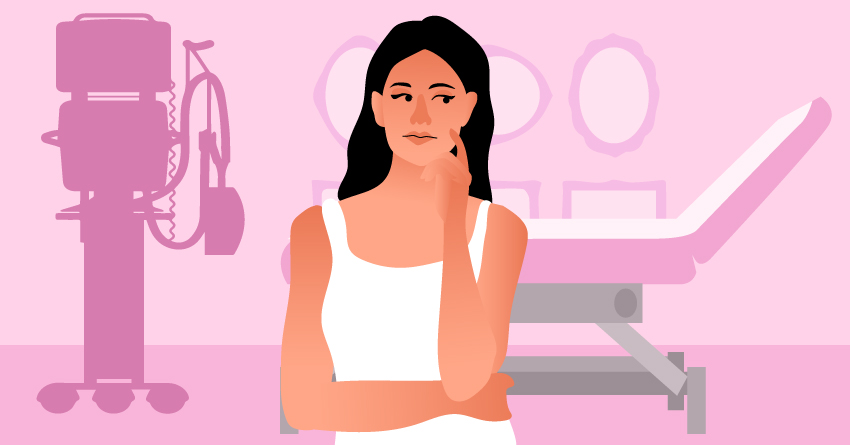
You’d like to know many things when discussing the ropes of female reproductive health. So, just like how you prepare your medical history, it helps to brainstorm questions to ask your gynecologist. It encourages you to make better-informed decisions and learn more about how your unique body works.
3 Choose the right gynecologist for you.
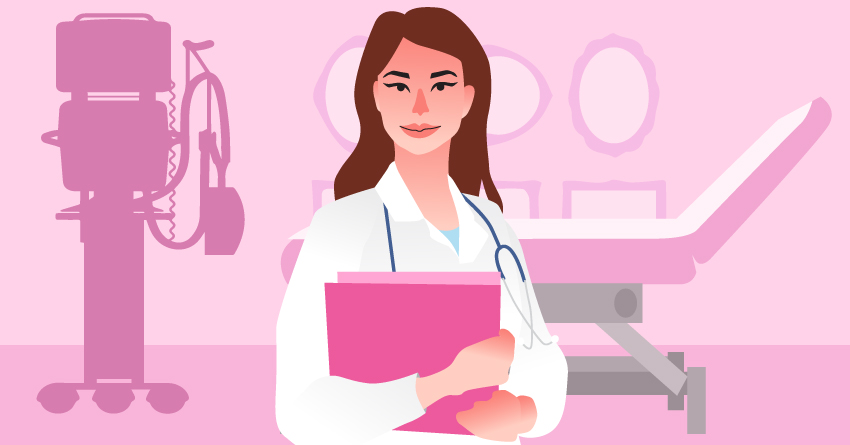
Prioritize comfort here, figuring out what kind of gynecologist you feel safe and secure around. Think of the possible traits of your ideal gynecologist, from their sex (male or female) to someone they know or who is completely new to them and has a lot of experience.
-
₱2,695.00
-
₱3,600.00
-
Original price was: ₱7,998.00.₱3,495.00Current price is: ₱3,495.00.
-
₱1,999.00
4 Wear the right clothes.
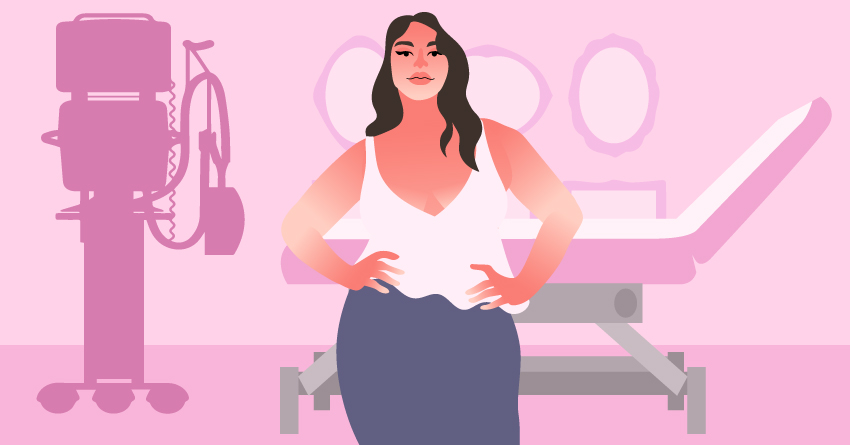
Preferably, cotton, and something flowy and comfortable that allows your body to breathe. Being dressed well is key, especially when physical exams are possible during your visit.
5 Have someone join you.

If you’re nervous about going alone, you can have a trusted woman companion like your mom, sister, or best friend. That way, you will feel more at ease going through this process and learn about the ropes of female reproductive health.
6 Avoid doing certain activities.
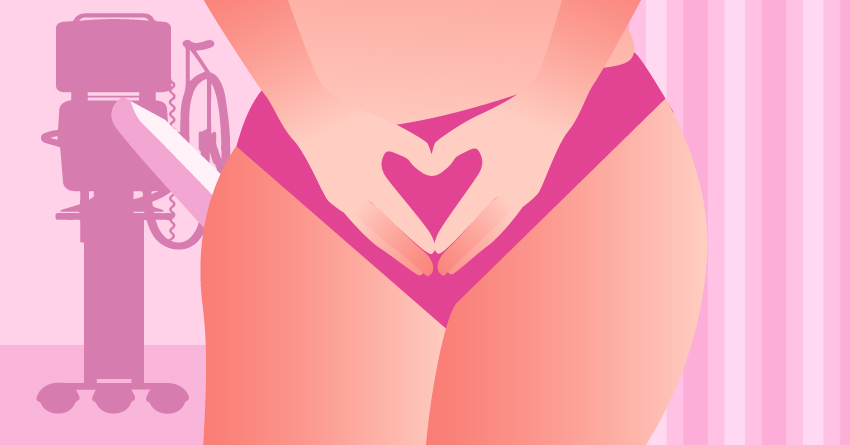
And by certain activities, we mean the following:
- Putting anything inside your vagina (ex. tampon)
- Having sex
- Applying powders and creams over your vulva
- Douching
We advise avoiding them a day or two before your first gynecologist visit as they may affect how things turn out during it.
Frequently Asked Questions
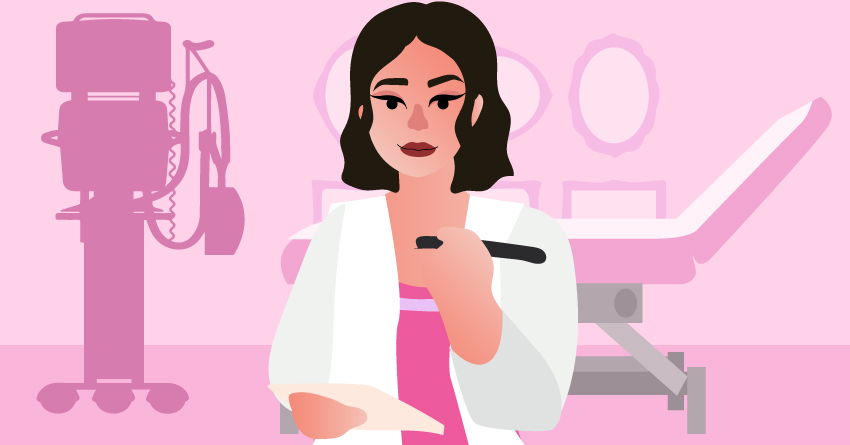
If you’re still eager to learn what to expect on your first gynecological visit, browse through this section with our answered queries.
1 At what age can I have my first gynecologist visit?
It is as early as the ages of 13 and 17, especially since these ages are peak puberty and lots of body exploration occurs. Hence, doing it then would avoid any potential mistakes. But if you’re older, that’s alright as well, and you’ll still be able to receive the aid you need.
2 Should I shave down there?
Not necessarily. It won’t affect anything when you get examined down there.
3 Post-gynecologist consultation, what should I do after?
Firstly, follow the medical advice your gynecologist gives you to improve your overall reproductive health as you get older. Don’t forget your upcoming consultations with them as well, even scheduling them in your planner that can alarm you when it’s time. Plus, the mind can only remember so much information.
Also, make healthy lifestyle choices, from the food you eat to ensuring daily movement. Lastly, continue to educate yourself and research more about reproductive health and self-care. You only have one body, so be intentional and cautious.
-
₱150.00
-
₱150.00
-
₱150.00
-
₱150.00
Want to Learn More on What to Expect?
In case you have a lot more time to uncover the ins and outs of your first gynecological visit, we have a video just for you! Featuring our OB-GYN on call, Dr. Issa Matibag, she’ll delve in deeper on what to expect and prepare for the big day. Check out down below!
Takeaway
Your first gynecologist visit can be nerve-wracking. From talking about your reproductive health and genitals to even sex education, it may be a lot to unpack and not feel flustered over. But things can run smoothly and comfortably by choosing the right gynecologist and having questions and your medical history prepped in advance. Most importantly, don’t forget to follow their advice and do your own research to improve your reproductive health and knowledge!
For more health-related guides such as this one, head over to the Lauvblog here.

